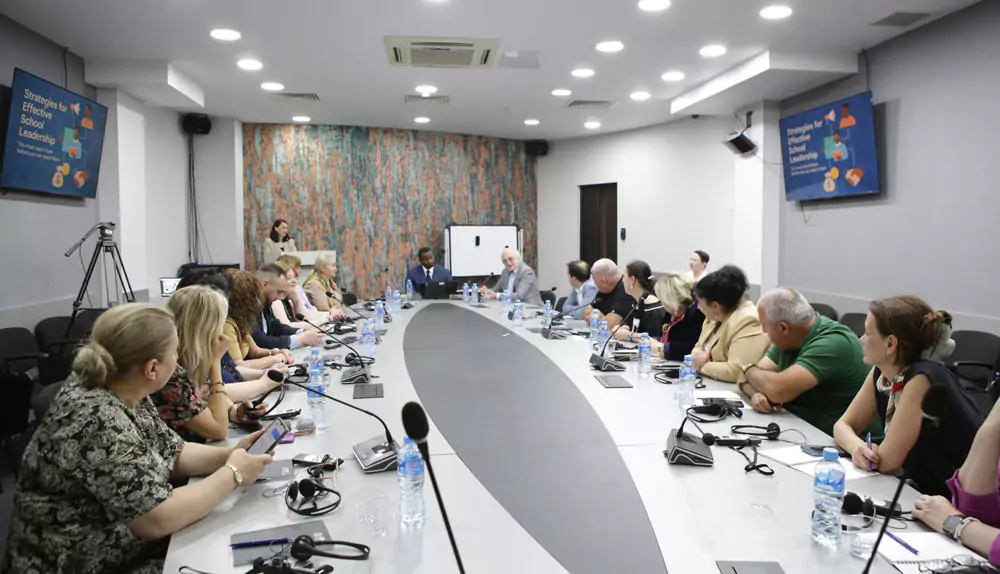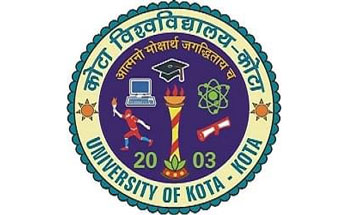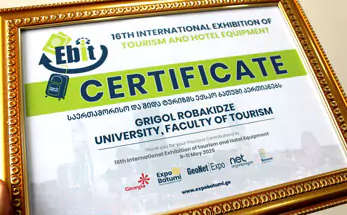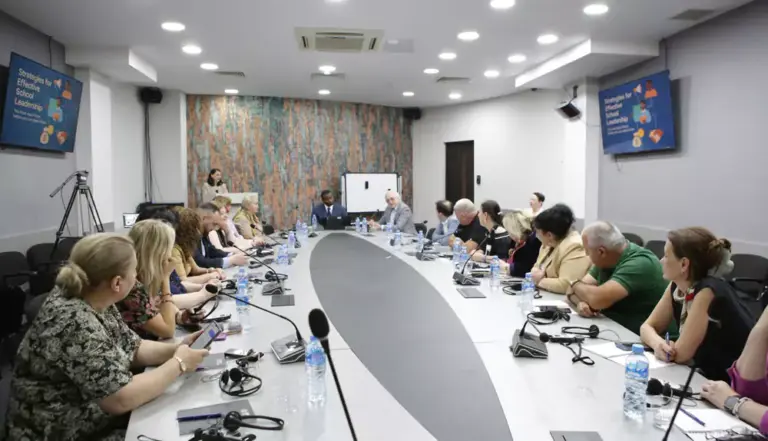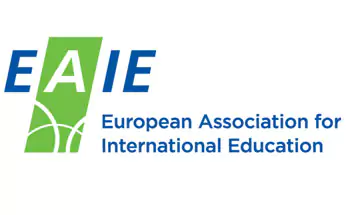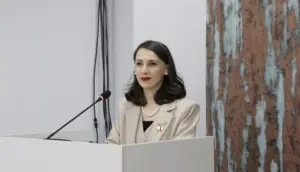
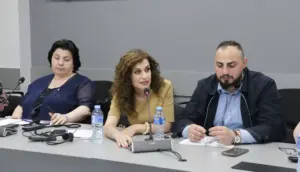
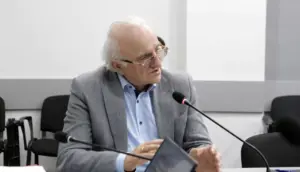
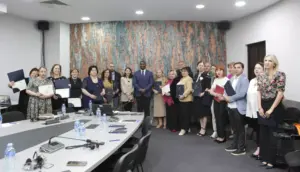
Key Themes Covered:
- Leadership Grounded in Relationships: Emphasizing that connection precedes instruction, Dr. Haymore advocated for leadership rooted in understanding the personal and professional needs of students, staff, and parents.
- Instructional Leadership: Participants explored strategies for fostering student engagement through relevant content and real-world connections, such as integrating student interests into lesson plans and employing cooperative learning models.
- Navigating Bureaucratic Challenges: Dr. Haymore encouraged school leaders to be strategic and creative in their decision-making, offering real-life examples of how he addressed systemic challenges while keeping student well-being at the forefront.
- Community Engagement: The workshop underscored the importance of treating families not just as stakeholders, but as partners and clients, and highlighted methods for meaningful communication and trust-building with parents.
- Modeling Kindness and Building Culture: Dr. Haymore stressed the power of compassion in school leadership and how a culture of care can transform the school environment. Practical techniques like staff shoutouts, student spotlight stories, and embedded social-emotional learning practices were shared.
- Actionable Takeaways: Participants engaged in reflection and dialogue around the question: “What do you hope your students or colleagues will remember about your leadership in five years?” This prompted leaders to consider their long-term impact and commit to specific steps for improvement.
The event concluded with an open Q&A session, followed by a collective call to action: to shift from a transactional model of school leadership to a service-oriented, student- and staff-centered approach.
This workshop exemplified Grigol Robakidze University’s ongoing commitment to educational excellence and its mission to support the professional growth of school leaders across Georgia.
The event was organized by the Strategic Development and Research Service, under the leadership of its head, Dr. Meri Lomia.
At the end of the workshop, participants were awarded certificates, recognizing their participation and valuable contribution to professional development.

